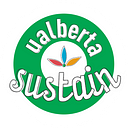Cow Pee Power: a prototype to generate electricity
Vidhya Krishnan, FURCA award winner, speaks about a novel way to produce renewable energy.
By Hussain Al-Rikabi
Vidhya Krishnan is an international honours student in biochemistry. Vidhya won the Outstanding Sustainability Research award at FURCA for her innovative electricity generator prototype that runs off of a common, agricultural waste product.
How are you coping in a COVID-19 world?
It has been really difficult for me because I’m away from home right now. I’ve been here for like, two years now, I’ve not gone back home. I’ve been like, struggling to like cope with like this entire situation, especially with this pandemic.
Any fun activities to help you during these times?
Yes, I love dancing and listening to music.
Great! Let’s switch gears a little bit. Could you give us a quick description of your award-winning prototype?
I built the model at home. The overall design consists of containers (mason jars) that have specific volumes of cow urine. And electrodes, one made of zinc that I obtained from batteries, and the other is aluminum that I obtained from foil. I connected those together to create a circuit and joined it to a voltmeter. Ultimately, this generated electricity because of the bacteria that is present in urine, which is able to digest urea into smaller compounds that facilitate the electrolytic reactions.
What was the inspiration behind this prototype?
The inspiration comes from my home country, Kenya. Kenya is known for farmlands, and some don’t get enough access to electricity. Therefore, I wanted to do something to help them.
I’ve had this idea since high school. After coming to the University of Alberta, I wanted to expand my knowledge and study the chemistry behind producing electricity, and indeed, I was able to bring the idea to life.
Why use cow pee, exactly?
The prototype can theoretically work with any kind of urine. However, if you look at human urine, we take a lot of processed food, medications, and that ultimately reduces the amount of electricity being produced.
Compared to other cattle, like goat or sheep, cows are 100% vegetarian; they feed on grass that is rich in protein. So, cows’ urine content is very in rich in urea. In addition, cows are larger and they produce higher volumes of urine.
Where does your interest in renewable energy come from?
Coming from a city and living in a city, I understand the amount of pollution that is produced from non-renewable energy. We will run out of these at some point. So there needs to be an alternative, and we are not going to run out of cows.
What lessons did you draw from the experience of making this prototype and sharing it at FURCA?
I was faced with many barriers while making the prototype. The thing I learned the most is not to give up and just keep going. Even if you get negative results, those results could be the reason to come up with something positive instead.
It was good presenting and getting exposure at FURCA. It gave me some confidence that I didn’t have before. Now I feel more confident talking about prototype.
Where do you think this might take you next? Do you see yourself doing more research in sustainability?
Yes, absolutely. I’m thinking how this prototype can be utilized at a larger scale. To do this, I’ll need to figure out how to harvest urine in larger amounts. This, I’m not sure of yet, but there are different solutions that I could try. There is a lot of opportunities at campus, so hopefully one day in the future, I see a larger scale of this prototype.
What would you say to other students who want to come up with innovative, and sustainable designs?
I would like to say that it is normal to come across many barriers. When you design something and you want it to be sustainable, you have to make sure that every component of it is sustainable. It is a process; it will not just happen overnight. It took me around three months to make my prototype work. So, it does require dedication and devotion of your time.
Learn more about the Festival for Undergraduate Research and Creative Activities: uab.ca/furca
